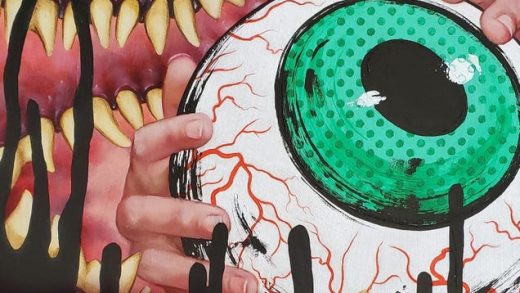Cheaters are an annoying part of almost every online video game. And banning them has become an important routine for game developers and publishers to keep their users happy.
The publisher of Escape from Tarkov, a game developed by the Russian company Battlestate Games, has added an unusual twist to the routine: naming and shaming the cheaters. In the last week, Battlestate Games said it banned 6,700 cheaters, and it published all their nicknames on publicly available spreadsheets.
“We want honest players to see the nicknames of cheaters to know that justice has been served and the cheater who killed them in a raid has been punished and banned,” Battlestate Games’ spokesperson Dmitri Ogorodnikov told TechCrunch.
Other companies, such as Call of Duty publisher Activision, or Valorant’s developer Riot Games, usually just announce the number of players they banned — not their nicknames and handles.
People in the industry believe the approach taken by Battlestate Games may be more effective and act as a better deterrent.
“Good. I wish we did it too,” an employee at a video game company, who works in the anti-cheat department and asked to remain anonymous as they were not authorized to speak to the press, told TechCrunch. “Many cheaters fabricate a false image to their friends and significant others, and when their deceitful behavior is exposed publicly, it brings shame to their name and discourages them from repeating the act.
“However, in some cases, despite being banned, these individuals simply purchase a new account with a similar profile to their old one and continue cheating without consequence, deceiving whoever they built a relationship with to play games with. Also cheaters who try to be professional and win tournaments would be exposed to the public so other players never give them the chance again to play,” they said. “You have broken the trust, you do not deserve the chance to come back.”
Cheats are essentially programs that exploit vulnerabilities in video games to give players unfair advantage when playing online against. Usually, cheats offer features such as “wallhack,” which allows players to see their opponents through walls, or “aimbot,” a system that automatically points at enemies, making it easier to kill them.
Making cheats has become a big business. In 2021, Chinese police with the collaboration of tech giant Tencent dismantled a video game cheating organization that had made more than $70 million selling cheats for PUBG Mobile.
Do you hack or reverse engineer video games? Do you work in anti-cheat? We’d love to hear from you. From a non-work device, you can contact Lorenzo Franceschi-Bicchierai securely on Signal at +1 917 257 1382, or via Wickr, Telegram and Wire @lorenzofb, or email [email protected]. You can also contact TechCrunch via SecureDrop.
Russian game developer bans and doxes 6,700 cheaters by Lorenzo Franceschi-Bicchierai originally published on TechCrunch
Source : Russian game developer bans and doxes 6,700 cheaters










